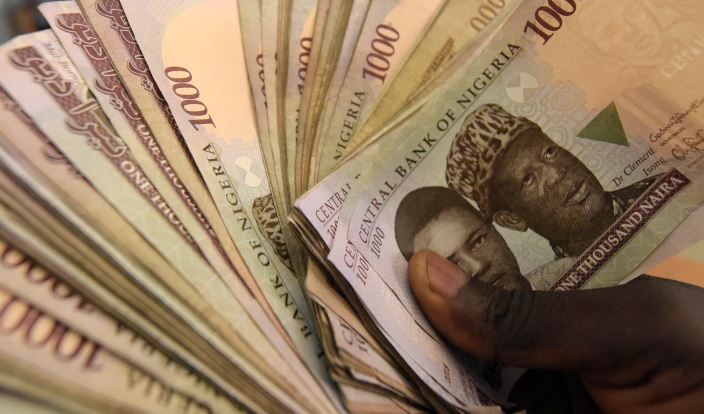
• 9.85 per cent interest is illogical, says Emmanuel
The pressure on the naira intensified yesterday, dragging it to about N1,600 to the dollar amid hope that the recent $900 million raised through its Federal Government’s domestic dollar bond will ease the depreciation of the local currency. As of yesterday, the greenback exchanged for N1,602 defying the interventions made by the Federal Government.
The continued fall in the value of the naira has also led to high prices amid low wages, as the proposed national minimum wage of N70,000 is yet to be implemented at the federal and state levels.
With the pump price of Premium Motor Spirit (PMS) soaring to above N1,000 per litre in most parts of the country, transportation costs have added more burden on Nigerians as an upward movement in the prices of necessities is now beyond the reach of the people.
Indeed, the poser experts are yet to find answers to, is why the value of the naira plummets daily in the face of both fiscal and monetary interventions.Most fundamentals that help to boost the value of naira have improved but the value of the Nigerian currency has not.
Some experts think the government may be allowing the naira to be under-priced to make up for the revenue shortfall due to subsidy payments.
An economist, Kelvin Emmanuel, said it makes little sense to raise $900 million at 9.85 per cent interest from foreign currency accounts held by customers locally, when the state oil company held dividend payments from NLNG worth hundreds of millions of dollars, due to the federating units on the excuse that it needs it to reconcile under-recovery of petrol.
He charged the Nigeria Governors’ Forum to speak about their share of Government-Owned Enterprises (GOEs) income due to the federating units. He also wondered why the government has not been able to deploy the fiscal strategy framework to change Nigeria’s fortune from debt to a revenue-generating country.
Undoubtedly, the naira has continued to face unprecedented pressure since the partial floating of the foreign exchange rate by the Central Bank of Nigeria (CBN) as part of the new government’s economic reform programme.
The $500 million domestic FGN U.S Dollar Bond, which opened for subscription last month, with a five-year maturity and a 9.75 per cent coupon, is the first tranche of a $2 billion bond programme registered with the Securities and Exchange Commission. It is believed that the 180 per cent oversubscription for the bond signals a renewed hope that the pressure on the domestic currency may soon abate.
The Minister of Finance and Coordinating Minister of the Economy, Wale Edun, who received the result from the Debt Management Office (DMO) noted that the oversubscription reflects investors’ confidence in Nigeria’s economic stability and potential for growth.
Elated by the result, the minister explained that the successful issuance of the domestic dollar bond marks a significant step in the government’s efforts to deepen economic growth and promote financial inclusion. He added that this achievement demonstrated the government’s commitment to diversifying funding sources amid economic challenges.
“The issuance of this inaugural domestic FGN U.S. Dollar Bond highlighted the continued faith investors have in Nigeria’s economy,” Edun said. The bond attracted a wide range of investors, including Nigerians both locally and abroad, as well as institutional investors. The proceeds from the bond will be allocated to critical economic sectors, as approved by President Bola Ahmed Tinubu.
The Director-General of the DMO, Patience Oniha, described the bond’s success as a pivotal moment for Nigeria’s economic development. She noted that the $900 million raised from diverse investors underscores the growing sophistication of Nigeria’s domestic fixed-income market.






